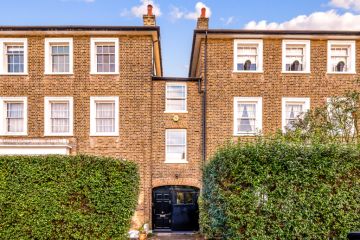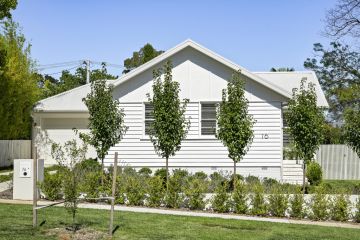New report shows how long it takes Canberrans to save up a deposit for their first home
If you’re a first home buyer looking to purchase in Canberra, it will take you almost five years to save for a 20 per cent deposit for a house, according to new research.
Domain’s 2018 First Home Buyers Report released on Thursday shows it takes on average 4.83 years to save for a house in the nation’s capital and 3.25 years for a unit.*
This is based on the entry-level prices, calculated at $542,000 for houses and $364,000 for units; and the average income for couples in Canberra aged between 25 and 34 years old.
The average time to save an entry-level house deposit of $108,400 has grown over the past 12 months by 3.5 per cent, but units remained unchanged at $72,800.
“Canberra has the third longest journey in the nation, behind Melbourne and Sydney, to save a 20 per cent deposit for a home – the recommended deposit to avoid lenders mortgage insurance,” said Domain chief data scientist Dr Nicola Powell.
“Units fare a little better. We have seen some overall softening in the unit market and that has meant the journey to home ownership is a lot quicker for first-home buyers.”
Holt, in Belconnen, has the lowest entry-level house price at $410,500 and takes 3.67 years to save a deposit of $82,100. Out of the top 10 most affordable suburbs for first-home buyers, five were in the Belconnen region.
In the unit market, suburbs in Woden and Belconnen dominated with Curtin taking out the lowest entry-level price at $235,000, where it takes 2.08 years to save a deposit of $47,000.
“Canberra was designed as a satellite city with hubs across the territory, with the most affordable areas being predominantly on the territory fringe,” said Dr Powell.
- Related: ACT loans drop 17.1 per over the first three months of 2018
- Related: Dr Nicola Powell weighs in on how the ACT budget will influence Canberra’s property market
- Related: First home buyer loans increase 64.4 per cent in the ACT
Independent Property Group executive director of project marketing, Wayne Harriden, said Canberra’s high rental costs contribute to the length of time it takes to save.
“Most first-home buyers are currently renting and because they are paying so much in rent it’s taking a long time to save their deposit,” he said.
Mr Harriden said in his experience, most home buyers are only paying a deposit of 5 per cent and that many take advantage of payment plans offered by developers.
“Developments with payment plans are good because it forces first-home buyers to lock in that goal and save,” he said.
“We find people will save over and above what is needed to settle. I’m stunned at how much people can save.”
Corey Pentland is one such first-home buyer who took advantage of a payment plan.
The 30-year-old purchased an off-the-plan, two-bedroom apartment at Ivy Woden in August last year.
“Saving for a deposit was going to take longer than I thought so the reason I went with this apartment was due to the fact you have to be locked down,” said Mr Pentland.
“I actually went in with an upfront deposit of 5 per cent and then did a payment plan for the remainder.”

Corey Pentland doesn’t believe an upfront 20 per cent deposit is realistic for most first-home buyers. Photo: Jamila Toderas
Developed by Amalgamated Property Group, Ivy is expected to be completed mid next year, at which point Mr Pentland intends to save an additional 5 to 10 per cent to add to his deposit. He said he doesn’t believe an upfront 20 per cent deposit is realistic for most first-home buyers.
“Everything is so expensive in Canberra and knuckling down to get that 20 per cent deposit means you are taking away all of your fun,” he said.
More Than Mortgages director and principal mortgage broker, Deanna Ezzy, said lenders’ mortgage insurance shouldn’t be feared.
“It’s not always wise to save a 20 per cent deposit because it takes so long,” she said.
“If first-home buyers wait five years, the house they wanted to buy five years ago is now $50,000 more.
“You can look at mortgage insurance in two ways, and that is it’s just another fee to pay, or it’s something that allows people to get into the market earlier.”
Dr Powell said with tighter lending restrictions expected in the wake of the banking royal commission, first-home buyers may be required to save a larger deposit.
“You can go to market with a lot less than 20 per cent depending on what your lender is willing to take, but I think if you look at the changes in the mortgage environment with tighter lending conditions, the deposit might have to be higher,” she said.
Dr Powell added the ACT government’s stamp duty abolition for first-home buyers, in place from July 1, 2019, will see more first-home buyers enter the market.
“Once new initiatives are in place, an influx of first-home buyers are expected. It’s likely we’ll see new house hunters wait for the new initiative to kick in, giving time to grow savings and consider a purchase in established suburbs.” she added.
*The time required to save a deposit is based on a dual income, with each person saving 20 per cent of their post-tax income monthly.
We recommend
Popular Melbourne pub business collapses
How does self-storage investing work?
States
Capital Cities
Capital Cities - Rentals
Popular Areas
Allhomes
More







